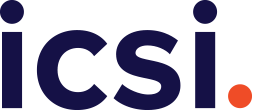Discover how an adaptive approach can change the conversation about improvement, activate your team and accelerate your work!
Watch Sarah Horst at the School-Based Health Alliance Conference in the video above.
Why do so many quality improvement projects fail? Knowing the science of improvement is not enough. Successful leaders also apply the psychology of change to their toughest improvement challenges, using adaptive methods and a collaborative mindset to meet people where they are and help them move forward.
ICSI’s Quality Improv(e) framework meets people where they are, empowering them to safely explore new ideas, embrace mistakes and become more nimble and resilient problem solvers. This is the art of improvement.
Experienced change-makers know to expect the unexpected when leading improvement. So why does traditional quality improvement (QI) training focus almost exclusively on technical tools built to foster statistical control? Control charts, fishbone diagrams and Plan-Do-Study-Act cycles represent only part of the improvement equation; they are the science of improvement. How are we systematically training the psychology component, or the art of improvement, from Deming’s System of Profound Knowledge?
For the last three years, ICSI has taught more than 3000 physicians, leaders and staff an adaptive approach to quality improvement that marries the Model for Improvement to improvisation and adaptive engagement methods. Improvisation, or “improv,” where art, often music or theater, is created spontaneously, provides a framework for teamwork and collaboration that complements traditional QI methods. Adaptive engagement methods give change-makers a robust set of tools to select from allowing flexible ways to talk about improvement.
- Six Guiding Principles of Quality Improv(e) (PDF): an adaptive framework for unbridled teamwork and exceptional collaboration
- Quality Improv(e) Methods & Mindset: Five Simple Tools (PDF)
